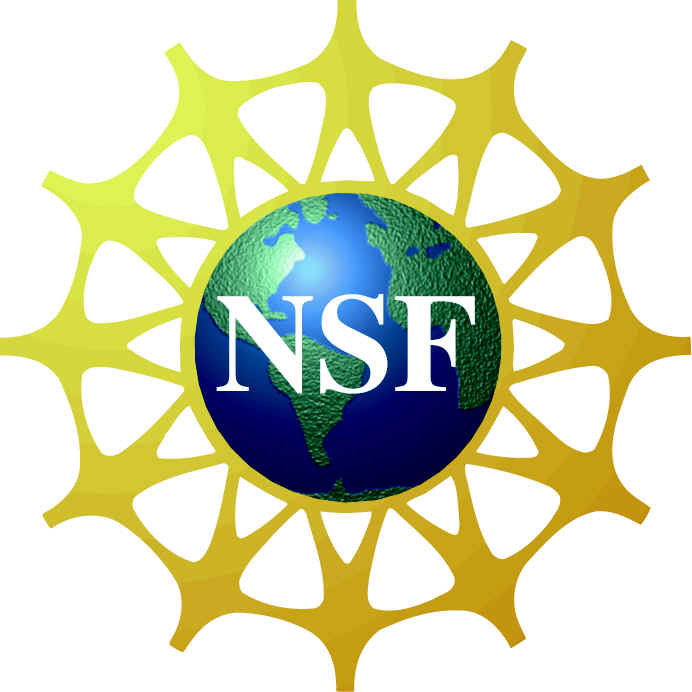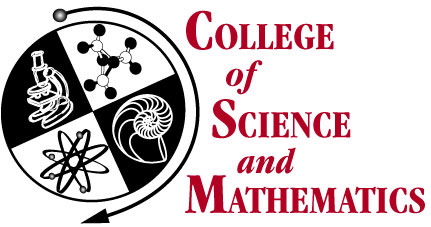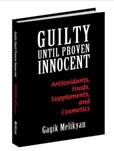 |
 |
 |
Page Description
The following page is a two column layout with a header that contains a quicklinks jump menu and the search CSUN function. Page sections are identified with headers. The footer contains update, contact and emergency information.
|
SERVICE TO THE GENERAL PUBLIC PROVIDED BY PROFESSOR MELIKYAN |
FROM THE EDITOR
My intention is to provide the general public with reliable and truthful information on antioxidants, foods, beverages, supplements, cosmetics, and natural products. The volume of information that becomes available every day is such that even the professionals working in the respective fields are having difficulty keeping up with it. For a lay person, it is impossible to read the original sources, to evaluate them, and to understand their scientific value. These "informational pieces" will help the general public to make educated choices, at the time when the federal and state agencies do not adequately protect them from potentially hazardous compounds.
![]() "Brazilian Blowout": why does it take so long to protect the public?
"Brazilian Blowout": why does it take so long to protect the public?
The FDA has issued an official warning to the cosmetics company, Brazilian Blowout, calling their hair straightening formulation "adulterated" and "misbranded." The reason is that the company has been using formaldehyde (CH2=O), as an active ingredient, and claiming that their product is formaldehyde-free. What is formaldehyde? This compound is one of the strongest carcinogens included in Group 1: Carcinogenic to humans, compiled by the International Agency for Research on Cancer (IARC). It has long been used in morgues to fix the human tissue (due to its ability to react with amino acids and create a 3D structure). The FDA has established through sample analysis that the adulterated cosmetic contains dangerously high levels of the liquid form of formaldehyde, from 8.7% to 10.4%. It has also concluded that formaldehyde can be found in a number of "Brazilian-style" keratin-based hair straighteners.
Analyzing formaldehyde is a standard analytical procedure. It can be done in a day if the laboratory is properly equipped. Now the question is if the alarm was raised a year ago, why did it take that long to issue a warning to the manufacturer? Meanwhile, the unsuspecting public has been using the said formulation! How many of them will develop cancer still needs to be seen. Who will be covering the medical expenses, and who will be paying for personal tragedies? The consumers and salon workers have already reported chest pain, vomiting, rush, eye disorders, respiratory tract problems, and nervous system disorders.
So, if you are using any of these cosmetic formulations, please take this information into consideration. This case also teaches us that even if the label says that the product is formaldehyde-free, it doesn't yet mean that it is the case. The federal and state agencies are not adequately doing their job protecting the American public. This is the main reason why I wrote the Guilty (below), in order to attract attention to this ongoing problem.
![]() Good news: Pfizer to stop selling Roxarsone
Good news: Pfizer to stop selling Roxarsone
The Chemical and Engineering News has recently reported that Pfizer has agreed to stop selling an arsenic-containing drug, called 3-Nitro or Roxarsone, to poultry producers in the United States. The compound has long been used by the poultry industry to fight parasitic infections, to alter meat color, and also to induce weight gain. The problem is that arsenic is a known carcinogen, and the FDA was able to demonstrate that the livers of broiler chickens contain higher levels of inorganic arsenic, compared to untreated chicken.
It is good news that the poultry industry is now asked to find alternative drugs, hopefully, not containing known carcinogens. The bad news is that the general public has been fed with arsenic-containing chickens since the 1940s (!) and only now the action is taken. Can anybody figure out how many people we, as a society, have lost to cancer because of this? How much money have we, as a society, spent for treating these cancer patients?
I am also questioning the rationale behind using an arsenic-containing product in the food industry, in any capacity, no matter what the justification is, was, or has been. Arsenic had been a popular way of poisoning people since the Middle Ages. How come that the federal and state agencies in charge have allowed for continuous exposure of the U.S. populace to this toxic species? And this happened despite the fact that since 1987 (!), arsenic and its compounds were included in Group 1: Carcinogenic to humans, compiled by the International Agency for Research on Cancer. For your information, the same group of proven carcinogens also includes the household names, such as asbestos, benzene, hexavalent chromium, mustard gas, and X-ray radiation.
![]() NIH accused of wasteful spending
NIH accused of wasteful spending
The National Institutes of Health (NIH) has been accused of wastefully spending hundreds of thousands of dollars to establish the effects of penis size in gay community. At the time when the research dollars are so difficult to get (ask any university faculty), it is unsettling to learn that taxpayers money - intended for fighting crippling diseases and finding a cure for them - does not serve its purpose. The wasteful spending was discovered by the Traditional Values Coalition. Other examples of wasteful spending are the analysis of the drug market in Houston following hurricane Katrina and the connection between contraceptives and STD prevention in Madagascar. It's apparent that we, as a society, need to develop better mechanisms for oversight and control over federal spending. It is time to contact our elected officials on the state and federal levels, and ask them to do the right thing, i.e., to stop the wasteful spending of the taxpayers money.
![]() Essiac tea: a fake cancer cure
Essiac tea: a fake cancer cure
Essiac tea or Flor Essence is making a comeback in cyberspace chatrooms with the proponents touting its cancer-treating, or even cancer-curing abilities. For the record, essiac tea has been around for quite some time, since the 1920s. As for the majority of natural extracts, the exact composition of essiac is not known. During the last several decades, the U.S. Food and Drug Administration, the American Cancer Society, and the National Cancer Institute have concluded that essiac tea is not efficient as an anticancer drug. More specifically, it failed to slow tumor growth, and in a number of studies, essiac actually increased the rate of cancer growth. Besides this, in large doses, it was even able to kill test animals. This is the reason, why the U.S. government refused to approve essiac as an anticancer drug. And, guess what? Now essiac is marketed as a dietary supplement, making it a subject of much looser control and regulation. This is exactly what the problem is! When a compound is called a drug, then it has to go through the vigors of FDA approval (preclinical and clinical studies, toxicology and pharmacokinetic tests, postmarket analysis, etc.), but, as soon as a compound, or a natural formulation, is marketed as a supplement, then, with minimal obstacles, and within a very short period of time, it can be placed on the shelf in the U.S. supermarket.
As I have suggested in Guilty (below), the natural multicomponent extracts should NOT be sold to the public, until all compounds present are structurally characterized by qualified parties, and each of them undergoes the same scrutiny as potential drug candidates.
![]() Good news
Good news
The Guilty now has its own website! Please check it out: www.csun.edu/gmelikyan. You can read a sample chapter on natural compounds and learn a lot more about the book (Novelty, Significance, Book outline, Customer reviews, Press releases, Public presentations, etc.). You can also read the latest issues of the newsletter published by the Alliance of Concerned Citizens.
http://losangeles.cbslocal.com/2011/03/03/gagik-melikyan-talks-food-and-product-safety/. Book information: Guilty Until Proven Innocent: Antioxidants, Foods, Supplements, and Cosmetics, 376pp, Dec 2010. This book is the only one on the market that tells the truth about antioxidants, green tea, red wine, coffee, hair color, food supplements, sunscreen lotions, natural compounds, and parabens, which are widely used in cosmetic formulations. It is written for the general public, and also for professionals from academia, food industry, government agencies, public and university libraries, business world, consumer protection and advocacy groups.
Book information: Guilty Until Proven Innocent: Antioxidants, Foods, Supplements, and Cosmetics, 376pp, Dec 2010. This book is the only one on the market that tells the truth about antioxidants, green tea, red wine, coffee, hair color, food supplements, sunscreen lotions, natural compounds, and parabens, which are widely used in cosmetic formulations. It is written for the general public, and also for professionals from academia, food industry, government agencies, public and university libraries, business world, consumer protection and advocacy groups.
The book is available through Amazon, $29.99 (incl. tax & S & H), and also from Matador bookstore, CSUN campus.
![]() You can help
You can help
Public
presentations are critically important for disseminating this knowledge
about foods, supplements, antioxidants, and natural compounds that our
bodies are exposed to.
During the last three months, I have made seven presentations for
students, faculty, doctors, dieticians, pharmacists, engineers,
businessmen, and also the public at large. Extensive Q&A sessions
and book signing usually concluded the events.
You can assist the general public by helping me to organize more
presentations at different venues, such as churches, synagogues,
professional and health-related organizations, interest groups, business
forums, and public gatherings of an educational nature.
If you have any ideas or suggestions, please give me a call
(818-677-2565) or just drop me a line (gagik.melikyan@csun.edu).
About this email message
This is an informational piece, which I am sending to
my students, colleagues, community members and other interested parties
to inform them of the latest developments pertaining to consumer
products.
I expect to send these messages on a regular basis.
Besides the scientific updates, you will also learn about my upcoming
public presentations and book signing events.
If your friends and family are interested in receiving these messages, please send an email request to
gagik.melikyan@csun.edu. If you prefer to be removed from this email list,
please respond to this message with the word “unsubscribe” in the
subject line.
No part may be reproduced or utilized in any form or
by any means, electronic or mechanical, or by any information, storage
or retrieval system, without a written permission from the author. Suggestions and feedback are welcome at gagik.melikyan@csun.edu.